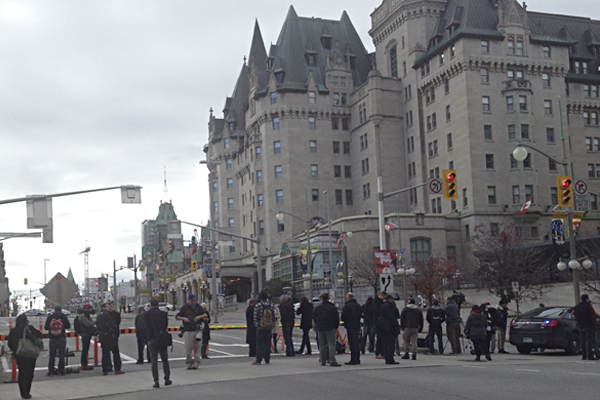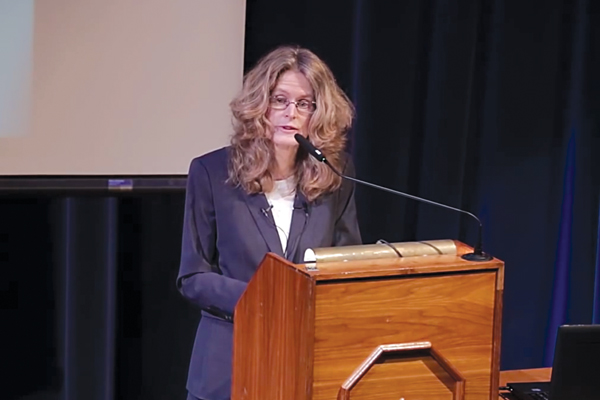Association of Part-Time Professors of the U of O looks to shed light on lower wages, job insecurity, stressful work conditions
It may have been the weekend, but this past Friday and Saturday still saw dozens of part-time professors meet on campus to raise awareness and discuss solutions for what they describe as an unfair working situation.
The Association of Part-Time Professors of the University of Ottawa (APTPUO) held a two-day conference, branded “(in)visible: the Lived Realities of Contract Faculty.”
The U of O, like most schools in Canada, assigns many of its courses to contract faculty rather than to full-time professors. Organizers of last weekend’s conference say there is a lack of awareness of the problems that these contract instructors face, such as lower wages in comparison with full-time staff, a lack of job security, and stressful working conditions.
The conference’s stated aim was to shine a light on these plights — hence the “invisible” branding.
“There is a lack of fora for discussion among part-time faculty about how things are for us,” said APTPUO secretary Émilie Pigeon. ”We want to have this forum so that we have the opportunity amongst ourselves and (to) strategize.”
“(Part-time faculty) are teaching the majority of classes, here and across the country,” she added. “Students are not aware of that most of the time because we don’t introduce ourselves as part-timers when we teach.”
Pigeon is a part-time professor in Indigenous studies. She says she teaches a class that is normally given by a full-time instructor, and that despite having a doctorate, she makes “pennies on the dollar” compared to what a full-time professor would make teaching the same course.
The most recent APTPUO collective agreement shows wages of $8,090 for a basic three-credit course.
Universities often hire contract instructors rather than full-time professors because it is usually cheaper than paying someone full-time and can also allow for someone who has a full-time job to bring their experience to a course as a side gig.
But many at this weekend’s conference said that for them, teaching is the main job, not a bonus endeavour, and that the relatively low pay has led them to have to take on multiple part-time jobs at once.
Thomas Boogaart, a history professor and a principal organizer of the conference, says he recalls incidents where part-time instructor colleagues of his have hesitated to meet over coffee because “the price of a damn cup of coffee was a threat to their budget for food.”
“It was shocking to me,” he says.
Besides financial concerns, several panels focused on the work environment for part-time instructors, including one on the differences in contract faculty culture between Ontario and Quebec.
Pascal Sergent is a longtime contract instructor in marketing at the Telfer School of Management. Over the last two decades, Sergent has taught at both the U of O and at the Université du Québec en Outaouais in Gatineau, and says that the atmosphere for contract faculty is much friendlier at the latter.
“Even if you are here for twenty years, you never feel like you really belong to the university,” he said of Ottawa.
He says that stronger labour laws in Quebec have contributed to this cultural difference.
Another panel on Saturday morning detailed the experiences of part-time professors who come from visible minorities or other marginalized groups. Carleton University professor Abdulghany Mohamed, who took part in this panel, detailed his experiences with microaggressions within the work environment.
The conference’s first day of events, held on Friday evening, included a keynote address from Carleton law professor Jamie Brownlee, who wrote a book on corporatization and academia, as well as a talk from Albertan contract instructor Gerry Potter, who is making a documentary about the issues facing part-time instructors.
On Friday, conference-goers also took part in a demonstration in protest of the Ontario government education policies, including the Student Choice Initiative and changes to OSAP.
Read More:
- APTPUO negotiations part of larger picture around precarious work
- Invisible professors
- U of O students, profs rally against province’s SCI, changes to OSAP






